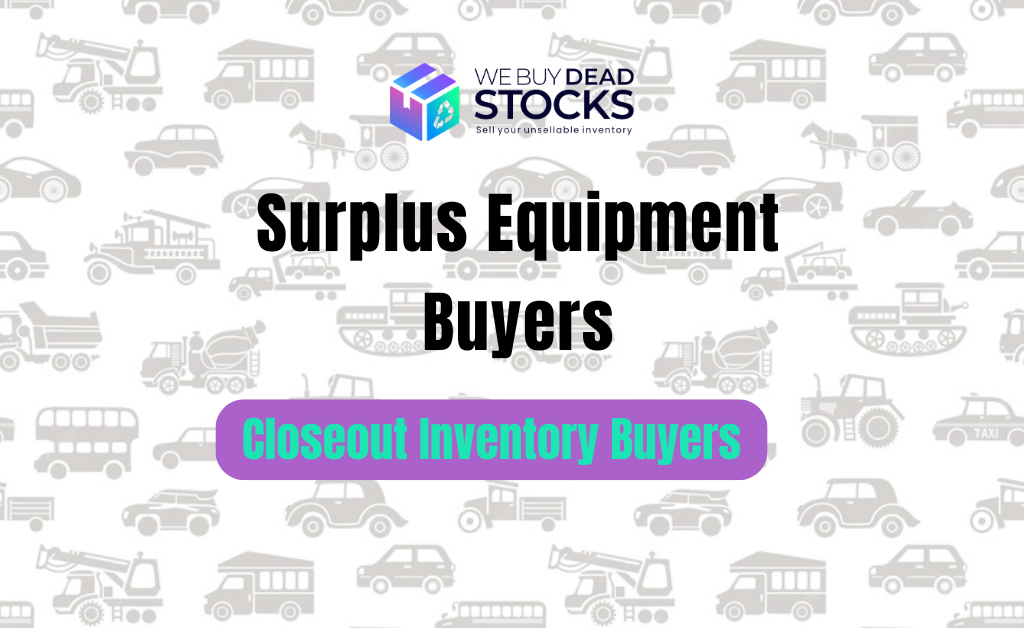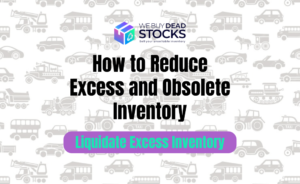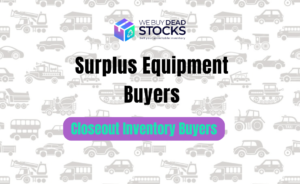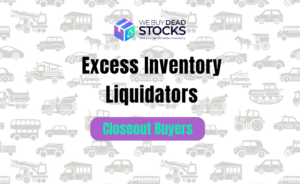In today’s competitive business environment, maximising profitability is a constant struggle. Businesses are always on the lookout for ways to streamline operations, reduce overhead costs, and find hidden value. One often-overlooked area for improvement is the strategic management of surplus equipment.
Surplus equipment represents idle assets that are no longer critical for day-to-day operations. These assets can tie up valuable capital, accumulate storage costs, and depreciate over time. By effectively disposing of surplus equipment, businesses can free up resources, generate additional revenue, and improve their overall financial health.
Understanding Surplus Equipment
Ever look around your workspace and see equipment gathering dust? You’re not alone. Businesses of all sizes accumulate what’s called surplus equipment. These are items you once used but no longer need for daily operations. Excess inventory liquidators play a vital role in this fiasco.
Surplus equipment can come in many forms, from hefty industrial machinery to everyday office supplies like unused printers or extra computers. Even car dealerships can have a surplus of automotive parts for discontinued models.
So, how does all this equipment pile up? There are a few common reasons:
- Tech on the Move: The world of technology is constantly evolving. New machines might outperform your older ones, leaving them behind.
- Shifting Needs: Maybe your production line changed, or your business strategy shifted. Suddenly, that fancy gadget you bought isn’t so essential anymore.
- Market Swings: Sometimes, unexpected changes in the market can leave you with extra inventory you just don’t need.
While these unwanted items might seem harmless, they can actually become a burden. Storing them takes up valuable space, and their value keeps dropping as they age (that’s called depreciation). Plus, they might become completely outdated (obsolete), meaning they’re useless even if they’re in good condition. This is where you’ll need Surplus Equipment Buyers.
The Role of Surplus Liquidators
So, you’re stuck with a surplus of equipment – unused printers, extra furniture, maybe even some outdated machinery. What do you do? This is where heroes known as Surplus Inventory buyers step in.
Think of them as matchmakers for unwanted items. Excess inventory liquidators specialise in buying excess inventory and surplus equipment from businesses like yours. They then find new homes for these items, either by reselling them directly or through auctions.
But why involve a surplus liquidator? Here’s how they can turn your storage room headache into a financial win:
- Fast Turnover: Selling unused equipment yourself can be a slow process. Liquidators have the experience and network to move your stuff quickly, freeing up space for what you actually need.
- Top Dollar: Getting a fair price for your surplus can be tricky. Excess inventory liquidators know the market and can ensure you get competitive pricing for your unwanted items.
- Reduced Risk: Trying to sell used equipment comes with risks. Liquidators handle the entire process, minimising the hassle and potential headaches for you.
In short, working with a surplus liquidator helps you monetize your surplus equipment efficiently, getting you valuable cash back and eliminating the burden of storage and depreciation. In the next section, we’ll explore some key things to consider when choosing a surplus liquidator, so you can find the perfect partner to get the most out of your unwanted equipment.
Maximising Profitability with Surplus Liquidators
Okay, so we all know that unused equipment can be a real drag. But what if we told you it could be a hidden goldmine? Surplus equipment buyers and excess inventory liquidators can help you unlock the value trapped in your forgotten machinery and dusty boxes.
Before diving headfirst into liquidation, there are a few smart strategies to maximise your profit:
- Know what you have: Take a detailed inventory of your surplus. Categorise everything, from old computers to extra office chairs. This helps with valuation and lets potential buyers know exactly what you’re offering.
- Valuation is key: Research the current market value of your surplus equipment. There are online resources and industry publications that can help you estimate fair pricing.
- Spread the word: Don’t underestimate the power of a little marketing. Let your network know you have surplus equipment for sale. You might find a buyer closer than you think!
Once you’ve prepped your surplus, it’s time to connect with a surplus liquidator. Here’s what to expect:
- Negotiation is key: Get quotes from multiple surplus liquidators to ensure you’re getting the best possible price for your equipment.
- Logistics matter: Discuss transportation and handling with the liquidator. Who’s responsible for moving the equipment? Are there any associated costs?
- Legal considerations: Make sure you understand the contract terms and any legal implications of selling your surplus. Don’t hesitate to ask questions and clarify any uncertainties.
By following these steps, you can turn your surplus equipment into a profitable opportunity. Excess inventory liquidators can be valuable partners in this process, helping you navigate the logistics, market your items effectively, and ultimately get the most cash out of your unwanted equipment.
Key Considerations When Choosing Surplus Liquidators
So, you’re ready to turn that surplus equipment into cash. But with so many surplus equipment buyers and excess inventory liquidators out there, how do you pick the right one? Here are some key considerations:
- Reputation is gold: Research the liquidator’s track record.Search for testimonials from previous customers, industry awards, and internet reviews.. A solid reputation speaks volumes about their reliability and expertise.
- Experience matters: Choose a liquidator with experience handling equipment similar to yours. They’ll understand the market value and have the network to find the right buyers.
- A strong network is key: The ideal liquidator has a well-established network of potential buyers. This could include resellers, auction houses, or even businesses looking for specific used equipment.
Once you’ve narrowed down your options, it’s time to ask some questions:
- Fees and costs: Understand the liquidator’s fee structure. This could include handling fees, marketing costs, or commission on sales.
- Sales channels: Where will they sell your equipment? Will they use online marketplaces, auctions, or direct sales? Knowing their sales channels helps you understand their reach and target market.
- Reporting mechanisms: How will they keep you informed about the progress of the sale? Will you receive regular reports on pricing, interest, and final sales figures?
Building a successful long-term partnership with your chosen surplus inventory buyer is crucial for maximising profitability. Here are some tips:
- Clear communication: Maintain open communication with your liquidator. Keep them updated on any changes to your surplus inventory and share any specific goals you have for the liquidation.
- Realistic expectations: Don’t expect top dollar for outdated equipment. Be realistic about the market value and focus on finding a liquidator who can get you the best possible price within that range.
- Building trust: A strong partnership is built on trust. Choose a liquidator who is transparent, reliable, and committed to getting you the best possible outcome.
By following these tips, you can find the perfect surplus liquidator who will help you transform your unused equipment into a source of profit. In the next section, we’ll explore some additional resources and tools to make your surplus liquidation journey a success!





